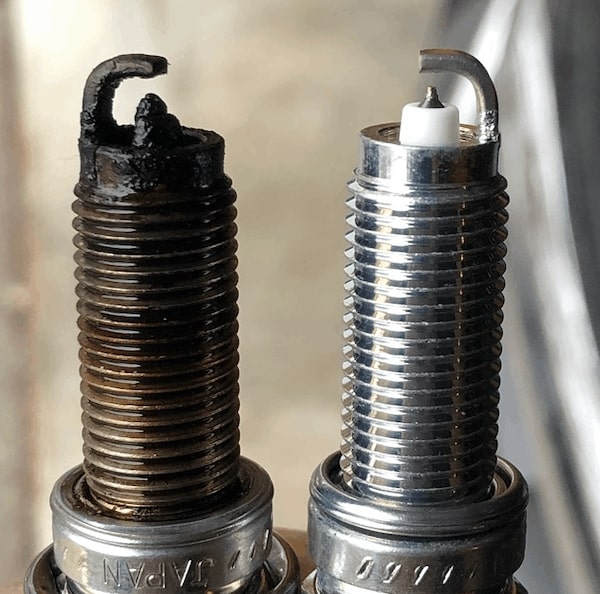One of the more jarring vehicle problems that you can experience is a backfire. It sounds like a shotgun blast and can scare you if you’re not prepared for it. If your Toyota Verso is backfiring, common causes include improper engine timing, bad spark plugs, engine running rich, and plug wires (if so equipped).
Toyota Verso Backfiring: Common Causes
Here are the main reasons why your Toyota Verso would be backfiring:
1. Ignition System
Your Toyota Verso’s ignition system consists of spark plugs and ignition coil packs. The engine may use an ignition coil and distributor instead of a coil pack for each cylinder. Typically, only older models use a distributor these days.
Any part of the ignition system can go bad. When this happens a weak spark ignites the mixture of air and fuel in the combustion chamber leaving fuel behind. On the exhaust stroke this mixture will burn up creating the loud backfire.
2. Running Rich
A rich fuel mixture leads to there being leftover fuel after combustion. When this happens, backfiring is the byproduct. Your Verso uses a series of sensors to measure the air and fuel going into the engine, as well as the oxygen content of the exhaust. A rich condition can occur when one of these sensors has failed.
3. Timing
Ignition timing is a very common cause of backfiring. Many modern vehicles use variable valve timing (VVT). When VVT goes bad, it can leave your Verso with the wrong timing for the situation. You’ll often get trouble codes P0011 or P0014.
Your Verso uses a timing chain or belt to keep the camshaft(s) and the crankshaft synced together. If it jumps a tooth, it can throw the entire vehicles timing off to the point that it can backfire. Here’s more on detecting a bad timing chain/belt.
Toyota Verso Backfire Diagnosis
The best way to start is to start with the check engine light. If it is on, you can pull the diagnostic trouble does with a good code scanner. They will provide you with vital information that’ll help you narrow down why your Verso is backfiring.
Check the Spark Plugs
It would be best to start with what is easiest. Taking a look at the spark plugs and determining their health is the easiest thing that you can do. It is also one of the most common reasons that a gas engine backfires. Here’s a writeup on how to tell if your Verso has bad spark plugs.
If the spark plugs look like they’ve fouled out, they are going to need replaced.

Other Ignition Components
Once you’ve checked the spark plugs, it’s time to test the coil packs. If they are not sending enough spark to the plug, the mixture won’t fire all the way and you’ll hear a loud backfiring sound. Here’s more on bad coil packs.
If your Verso has spark plug wires, they can go bad. Testing them with a voltmeter can quickly tell you if they are bad or not. If they are really bad, you can often watch the spark “leak” off of them with your engine running at night. Here’s how to diagnose them the right way. How to Test a Plug Wire, ChrisFix (YouTube).
Oxygen Sensors
Bad oxygen sensors can lead to your engine adjusting the air fuel mixture to the point that it is so rich that it causes backfiring. If the air/fuel mixture is too rich, your Verso should have thrown throw the P0172 or P0175 trouble codes.
Replacing the oxygen sensor when these codes pop up almost always clears them. You can click on the links directly above for all of the reasons that this code would pop up.
Timing Chain/Belt
A bad timing chain or belt can cause your Verso to fire the spark plug too late in the timing cycle. If your engine uses variable valve timing, a failed camshaft actuator can cause backfiring. You should get a trouble code such as P0011.
Conclusion: Toyota Verso Backfire
Backfiring is most commonly caused by ignition related issues. If there is anything you would like to add, please drop a comment. Good luck fixing your Verso!

